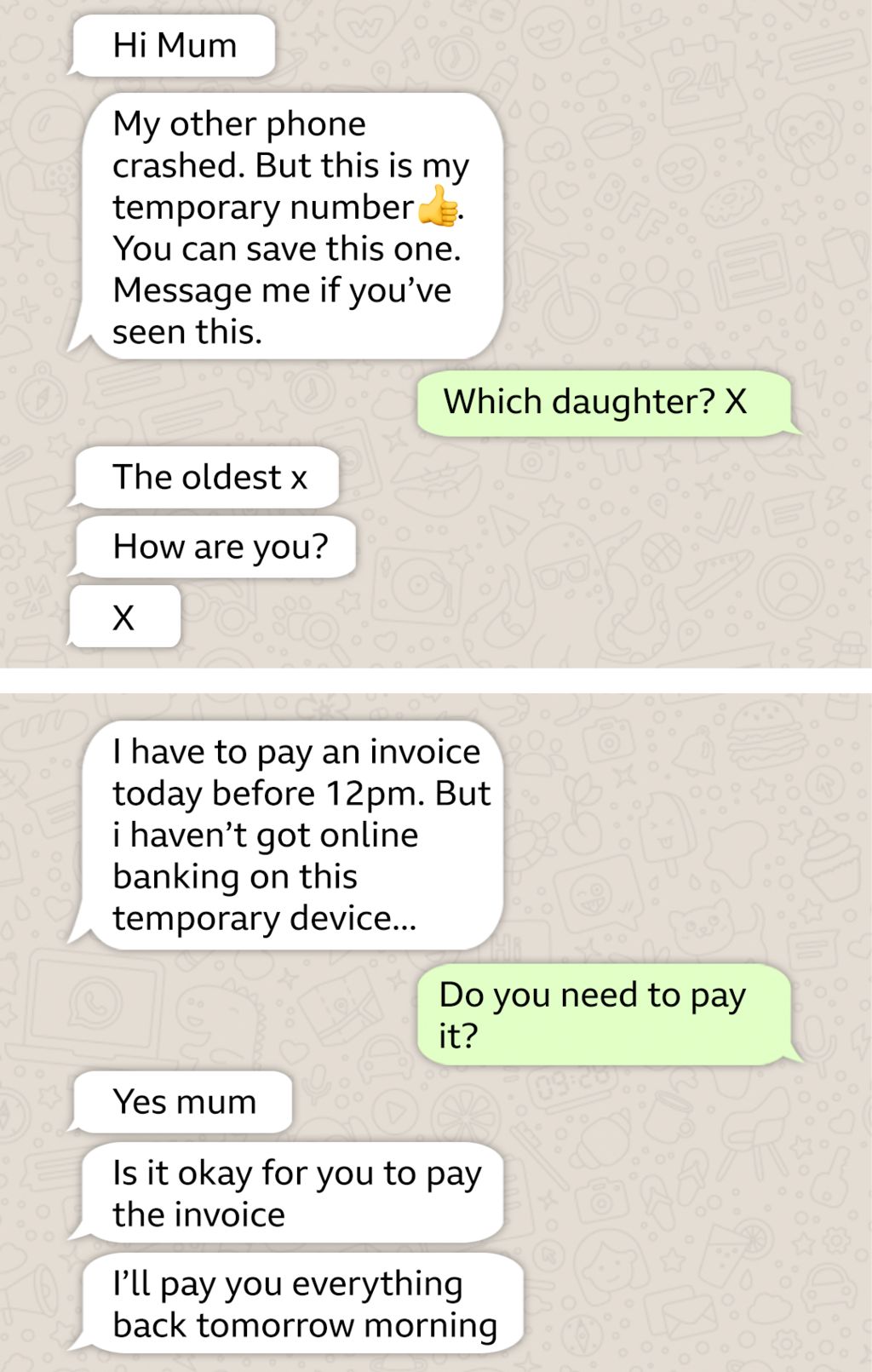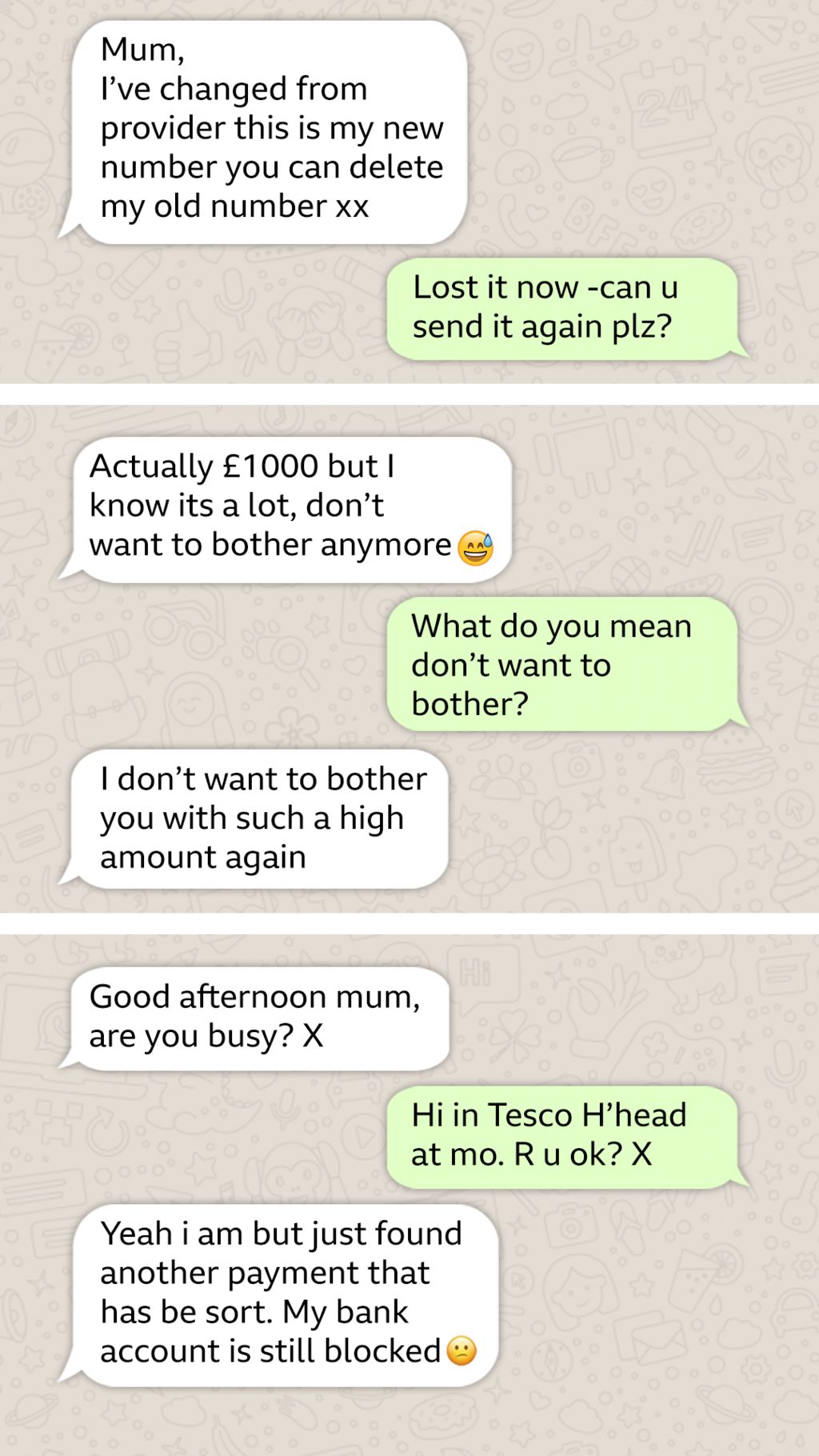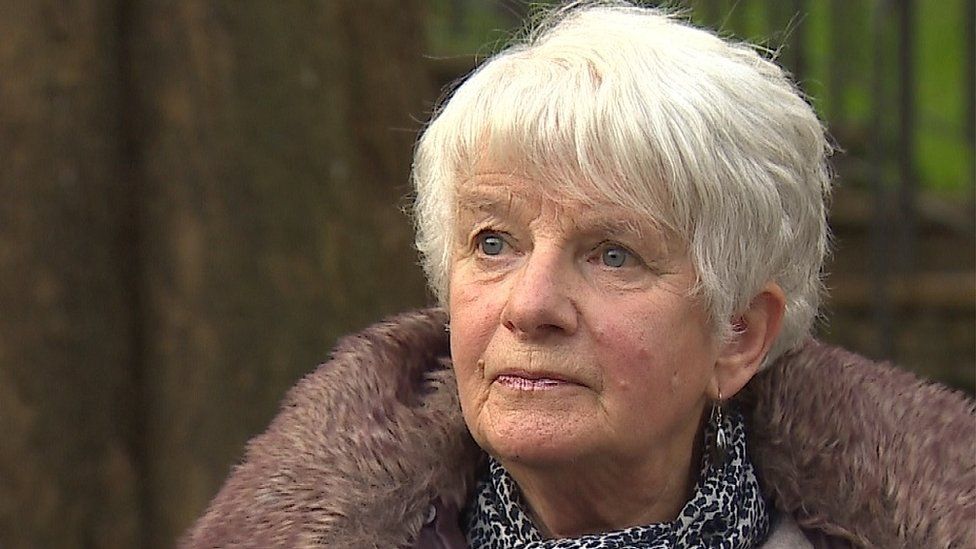Victims of a WhatsApp scam have been left thousands of pounds poorer after being tricked into handing over cash.
Con artists have been sending texts claiming to be relatives with new numbers, then asking for help with bills or other costs.
Many start with: “Hello mum, I’ve got a new phone, please save the number.”
North Wales Police said victims in Wales had lost an average of almost £2,500 each in the UK-wide fraud.
WhatsApp said people should request a voice note or call if they received a suspicious message.
Sarah Capper, from Rhyl, Denbighshire, was targeted last month and said the messages seemed “completely genuine”.
She added: “I got a message which started ‘Hi mum’, saying their old phone had crashed and could I save this new number.
“We chatted for a while and the scammer was even talking with me about being stressed at work as if they were my daughter.”

She was asked to help pay an invoice as her “daughter” did not have mobile banking on her new phone and was promised she would be repaid straight away.
When she spoke to her daughter the next day and she had no idea what she was talking about, Ms Capper “burst into tears” as she had handed over £2,100, including £1,800 borrowed from her partner.
“I would have sworn blind that I was talking to my daughter, but it was a complete stranger. It’s frightening and very upsetting.”
But Ms Capper got lucky as the payment bounced – police think the bank already considered the scammer’s account suspicious.


Zoe Burrell, from Anglesey, saved a number in her daughter’s name after getting a WhatsApp message that said: “Mum…… this is my new number, you can delete my old number xx.”
All the scammer’s messages then bore her daughter’s name and “a little thing that makes it seem more genuine,” Ms Burrell said.
“I’ve lent my daughter money before, and I’ve always had it all back.
“She’s changed her phone number in the past as well, so it all seemed very legit to begin with.”


The fraudster claimed Ms Burrell’s daughter needed cash quickly so sense went “out of the window” and she transferred £4,800.
The last of Ms Burrell’s four transfers did not go through as the bank became suspicious.
“I was devastated,” Ms Burrell said.
“You just feel like you’ve been taken for a fool. They’re very clever and the personal thing, masquerading as a loved one, it pulls you in.”
Both women wanted to speak out to stop others being ripped off.

North Wales Police Det Con Rachel Roberts said many victims were women with adult children.
Investigators are trying to figure out if the fraudsters research their victims or whether they are using a confidence trick.
Det Con Roberts said officers were seeing a new victim every day: “In just two weeks at the start of January, we saw scammers try to steal £24,000 from people in north Wales alone.
“It’s a particularly nasty scam because the criminals are often posing as someone’s son or daughter.
“WhatsApp is a messenger platform that people use to talk to close friends and family, and people naturally take their children on face value.”
She advised people getting requests for cash to consider whether they are genuine, taking time to think about what they are being asked and calling people back on a different number to check it is actually them.
Kathryn Harnett, from WhatsApp, said: “WhatsApp protects our users’ personal messages with end-to-end encryption, but we want to remind people that we all have a role to play in keeping our accounts safe by remaining vigilant to the threat of scammers.
“If you receive a suspicious message (even if you think you know who it’s from), calling or requesting a voice note is the fastest and simplest way to check someone is who they say they are – a friend in need is a friend worth calling.”



No comments:
Post a Comment
Note: only a member of this blog may post a comment.